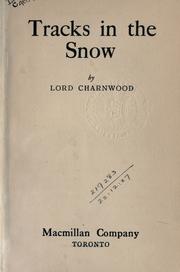By Lord Charnwood (Godfrey R. Benson, 1864-1945).
Longman's, Green and Co. [UK]; The Dial Press [US].
1906 [UK]; 1928 [US]. 281 pages.
Online HERE, HERE, HERE, and HERE.
One contemporary reviewer was concerned that the author, who enjoyed an established literary reputation, might have come down in the world by writing a detective story; a few excerpts follow [SPOILER ALERT: This article reveals whodunit]:
The publication of a detective novel by Lord Charnwood, the distinguished biographer of Abraham Lincoln, is literary news of exceptional interest; to use a famous journalistic expression, it is a case of the man biting the dog. . . . writing a detective story is not so easy as it sounds; on the contrary, it is something to be approached with prayer and fasting. The world fairly swarms with keen-eyed readers waiting to pick a detective or mystery story to pieces and contemptuously expose its improbabilities.
. . . it [the novel] is a good one; perhaps not so thrilling as some, but certainly much better written than most, and telling a story of sufficient complexity to satisfy even the exacting taste of the mystery-novel addict, who craves action and suspense and is little concerned with literary craftsmanship or the niceties of style and phraseology. — Herbert Asbury, "Who Knifed Mr. Peters?", THE OUTLOOK (April 25, 1928)From other reviews:
Tracks in the Snow is by the distinguished biographer of Lincoln, Lord Charnwood, and is marked by the development of characters (with bearing on the mystery) as well as by an unusual turn of the story after the criminal is caught and begins to confess. — Gilbert Seldes, "An Outline of Mystery," THE BOOKMAN (September 1928; scroll to page 102, left bottom)
. . . For sheer cleverness of the unobtrusive kind, hardly anything in the book can exceed the verisimilitude of the homely, almost deprecating, style in which the quiet country rector records this sensational narrative—a style marvellously revealing the narrator as imagined by the author, yet quite competent to pourtray his more extraordinary companions. — "Novel Notes," THE BOOKMAN [UK] (September 1906)
Tracks in the Snow is a detective story, and, as such, is above the average. But it has other virtues that are seldom found in mystery novels.
The action turns upon the murder in 1896 of Eustace Peters, a wealthy bachelor, who was found stabbed in bed at his house in Long Wilton; and the narrative takes the form of a series of reminiscences of the hunt for the criminal and the subsequent trial, written years afterwards by the clergyman who was Rector of that parish at the time.
The Rector describes how suspicion first fell upon Peters's gardener, and how it then veered from one to another of four possible men, until finally the crime was driven remorselessly home to the real culprit.
All this is ingenious and exciting enough, but the uncommon distinction of the book lies in its incidental scenes of country life, its portraiture, its strong literary style, and the charm with which Lord Charnwood has invested the Rector's own personality. — THE SPECTATOR (5 August 1927)
Category: Detective fiction

No comments:
Post a Comment